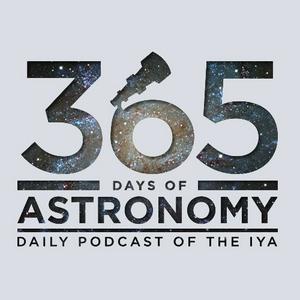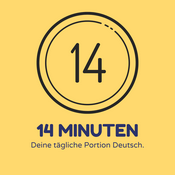508 odcinków
- A podcast about rocks, big and small.
Dear Cheap Astronomy – What's Psyche really like?
Psyche is an asteroid in the asteroid belt and apparently a very metal rich one, which makes it a prospecting target for budding asteroid miners. Pysche is also a spacecraft, launched on October 13, 2023. We're recording this episode about one month after launch when it's already over 15 million km from Earth – and its destination? Yep, Psyche – the asteroid.
Dear Cheap Astronomy – How is Mars Sample Return mission going?
Here at Cheap Astronomy we've often said that landing on Mars is one thing – getting off it again is quite another. But this is the intention of the Mars Sample Return mission – which has already commenced insofar as the Perseverance rover is currently collecting samples for it – some of which have dropped for later retrieval, while others remain stored within the rover.
We've added a new way to donate to 365 Days of Astronomy to support editing, hosting, and production costs.
Just visit: https://www.patreon.com/365DaysOfAstronomy and donate as much as you can!
Share the podcast with your friends and send the Patreon link to them too!
Every bit helps! Thank you!
------------------------------------
Do go visit http://www.redbubble.com/people/CosmoQuestX/shop for cool Astronomy Cast and CosmoQuest t-shirts, coffee mugs and other awesomeness!
http://cosmoquest.org/Donate This show is made possible through your donations.
Thank you! (Haven't donated? It's not too late! Just click!)
------------------------------------
The 365 Days of Astronomy Podcast is produced by the Planetary Science Institute. http://www.psi.edu
Visit us on the web at 365DaysOfAstronomy.org or email us at [email protected]. Deep Astronomy - Discoveries of Webb Space Telescope Ep 3: The Flares of Sagittarius A*, Our Galaxy's Black Hole
10.02.2026 | 8 min.https://www.youtube.com/watch?v=d7FAg_AYXaw
From April 14, 2025.
Astronomers using the JWST have made direct observations of the black hole at the center of our galaxy: Sagittarius A*. These observations are possible because the Webb Space Telescope can peer through the dust at the center of our galaxy using infrared light. These observations surprised astronomers.
We've added a new way to donate to 365 Days of Astronomy to support editing, hosting, and production costs.
Just visit: https://www.patreon.com/365DaysOfAstronomy and donate as much as you can!
Share the podcast with your friends and send the Patreon link to them too!
Every bit helps! Thank you!
------------------------------------
Do go visit http://www.redbubble.com/people/CosmoQuestX/shop for cool Astronomy Cast and CosmoQuest t-shirts, coffee mugs and other awesomeness!
http://cosmoquest.org/Donate This show is made possible through your donations.
Thank you! (Haven't donated? It's not too late! Just click!)
------------------------------------
The 365 Days of Astronomy Podcast is produced by the Planetary Science Institute. http://www.psi.edu
Visit us on the web at 365DaysOfAstronomy.org or email us at [email protected].- https://www.youtube.com/watch?v=PpZRjII8qkc
Hosted by: Fraser Cain (@frasercain) and Dr. Pamela L. Gay (@CosmoQuest)
Streamed live on Feb 2, 2026.
One long standing mystery in astronomy were the quasars. Incomprehensible energy blasting out of a point-like source, billions of light years away. We now know these are actively feeding supermassive black holes, which can turn off and on in a startlingly short period of time. Today: When black holes awaken! Our Universe is filled with sleeping monsters. And sometimes, whether we want it or not, they wake up hungry. In this episode, we take a look at the science behind how and why black holes of all sizes can go from nothing to the triggers of massive high-energy power release.
This show is supported through people like you on Patreon.com/AstronomyCast
In this episode, we'd like to thank: Burry Gowen, Eric Lee, Jeanette Wink, Michael Purcell, Andrew Poelstra, David, David Rossetter, Ed, Gerhard Schwarzer, Jason Kwong, Joe McTee, Sergey Manouilov, Siggi Kemmler, Sergio Sancevero
Image credit: LOFAR/Pan-STARRS/S. Kumari et al.
We've added a new way to donate to 365 Days of Astronomy to support editing, hosting, and production costs.
Just visit: https://www.patreon.com/365DaysOfAstronomy and donate as much as you can!
Share the podcast with your friends and send the Patreon link to them too!
Every bit helps! Thank you!
------------------------------------
Do go visit http://www.redbubble.com/people/CosmoQuestX/shop for cool Astronomy Cast and CosmoQuest t-shirts, coffee mugs and other awesomeness!
http://cosmoquest.org/Donate This show is made possible through your donations.
Thank you! (Haven't donated? It's not too late! Just click!)
------------------------------------
The 365 Days of Astronomy Podcast is produced by the Planetary Science Institute. http://www.psi.edu
Visit us on the web at 365DaysOfAstronomy.org or email us at [email protected]. - Dr. Al Grauer hosts. Dr. Albert D. Grauer ( @Nmcanopus ) is an observational asteroid hunting astronomer. Dr. Grauer retired from the University of Arkansas at Little Rock in 2006. travelersinthenight.org
From June, 2025.
Today's 2 topics:
- In the search for life on Mars, Europa, Titan, and elsewhere in the universe astro-biologists are scouring the Earth for creatures tough enough to flourish under really difficult conditions. So far the leading species are the Tardigrades commonly known as water bears or moss piglets.
- Data are consistent with the hypothesis that the planet K2-18b is a Hycean planet with a warm liquid water ocean teaming with life and a thin hydrogen rich atmosphere containing methane and other molecules containing carbon. Scientists in an opposing camp point out what we might be observing is a rocky world with a hot life killing atmosphere.
We've added a new way to donate to 365 Days of Astronomy to support editing, hosting, and production costs.
Just visit: https://www.patreon.com/365DaysOfAstronomy and donate as much as you can!
Share the podcast with your friends and send the Patreon link to them too!
Every bit helps! Thank you!
------------------------------------
Do go visit http://www.redbubble.com/people/CosmoQuestX/shop for cool Astronomy Cast and CosmoQuest t-shirts, coffee mugs and other awesomeness!
http://cosmoquest.org/Donate This show is made possible through your donations.
Thank you! (Haven't donated? It's not too late! Just click!)
------------------------------------
The 365 Days of Astronomy Podcast is produced by the Planetary Science Institute. http://www.psi.edu
Visit us on the web at 365DaysOfAstronomy.org or email us at [email protected]. - Hosted by Avivah Yamani, our Director.
February 2026 is packed for stargazers at the equator, with a dusk-time planet parade, dark New Moon skies for astrophotography, and the year's first "Ring of Fire" annular solar eclipse on February 17 (visible from Antarctica). Catch beautiful Moon pairings with Antares, Saturn, the Pleiades, and Jupiter, and join the Globe at Night campaign to help measure light pollution in your area.
We've added a new way to donate to 365 Days of Astronomy to support editing, hosting, and production costs.
Just visit: https://www.patreon.com/365DaysOfAstronomy and donate as much as you can!
Share the podcast with your friends and send the Patreon link to them too!
Every bit helps! Thank you!
------------------------------------
Do go visit http://www.redbubble.com/people/CosmoQuestX/shop for cool Astronomy Cast and CosmoQuest t-shirts, coffee mugs and other awesomeness!
http://cosmoquest.org/Donate This show is made possible through your donations.
Thank you! (Haven't donated? It's not too late! Just click!)
------------------------------------
The 365 Days of Astronomy Podcast is produced by the Planetary Science Institute. http://www.psi.edu
Visit us on the web at 365DaysOfAstronomy.org or email us at [email protected].
Więcej Edukacja podcastów
Trendy w podcaście Edukacja
O The 365 Days of Astronomy
The 365 Days of Astronomy podcast launched in 2009 as part of the International Year of Astronomy. This community podcast continues to bring you day after day of content across the years. Everyday, a new voice, helping you see the universe we share in a new way. This show is managed by Avivah Yamani, edited by Richard Drumm. This podcast is funded through Patreon.com/CosmoQuestX and produced out of the Planetary Science Institute.
Strona internetowa podcastuSłuchaj The 365 Days of Astronomy, Imponderabilia - Karol Paciorek i wielu innych podcastów z całego świata dzięki aplikacji radio.pl

Uzyskaj bezpłatną aplikację radio.pl
- Stacje i podcasty do zakładek
- Strumieniuj przez Wi-Fi lub Bluetooth
- Obsługuje Carplay & Android Auto
- Jeszcze więcej funkcjonalności
Uzyskaj bezpłatną aplikację radio.pl
- Stacje i podcasty do zakładek
- Strumieniuj przez Wi-Fi lub Bluetooth
- Obsługuje Carplay & Android Auto
- Jeszcze więcej funkcjonalności


The 365 Days of Astronomy
Zeskanuj kod,
pobierz aplikację,
zacznij słuchać.
pobierz aplikację,
zacznij słuchać.


































